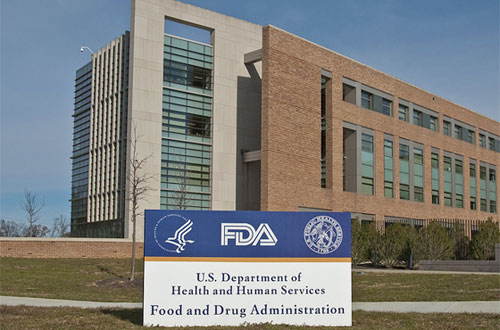
The US FDA has approved the first drug to treat submental fat in adults – otherwise known as a double chin.
The US regulator gave the nod to Kythera Biopharmaceuticals Kybella (formerly ATX-1-1), a formulation of the cell-busting drug deoxycholic acid that is designed to destroy fat tissue when injected under the chin and is tipped by some market observers as being the next Botox.
Prior to the approval of Kybella the only treatment available for double chin was liposuction or a surgical neck lift, and Kythera’s drug is expected to be popular as it is less invasive and can be performed in a few minutes in the doctor’s office.
Patients receive up to 50 injections in a single treatment, with up to six single treatments administered no less than one month apart, according to the FDA, which cautioned that the treatment should only be administered by a licensed healthcare professional.
The FDA has also taken pains to be point out that Kybella is only approved to treat fat under the chin, and should not be applied anywhere else on the body.
Kybella represents “a new product category within the rapidly growing facial aesthetics market,” according to Kythera’s chief executive Keith Leonard, who has indicated that the product could reach $500m in peak annual sales.
The American Society of Aesthetic Plastic Surgery (ASAPS) notes that in 2013 US consumers spent an estimated $12bn on doctor-administered cosmetic procedures, and as the first non-surgical approach to submental fat reduction some analysts believe it will make inroads into the market. For example, Leerink Swan puts its peak sales potential at around $300m.
That potential has raised speculation in the past that Kythera may find itself the subject of a takeover attempt, perhaps from Botox manufacturer Allergan (now part of Actavis) or another specialty drugmaker such as Valeant that also has an interest in cosmetic pharmaceuticals.
The popularity of Botox has made it an obvious target for counterfeiters, with dozens of seizures of fake and unlicensed copies of the product in recent years. Earlier this month the FDA warned of yet another incident in which counterfeit Botox may have found its way into doctors’ offices and medical clinics nationwide.
Perhaps mindful that Kybella could also be a target, Kythera is launching the product with a holographic label that will make it easier for healthcare practitioners to identify genuine product.
Kythera has also filed for approval of Kybella in Canada, Switzerland and Australia and has indicated it intends to submit it in Europe this year.
The company reacquired the product from Bayer last year for $84m, having licensed it to the German company in a $373m deal – including $43m upfront – in 2010. Bayer stands to receive royalties on sales outside North America.




